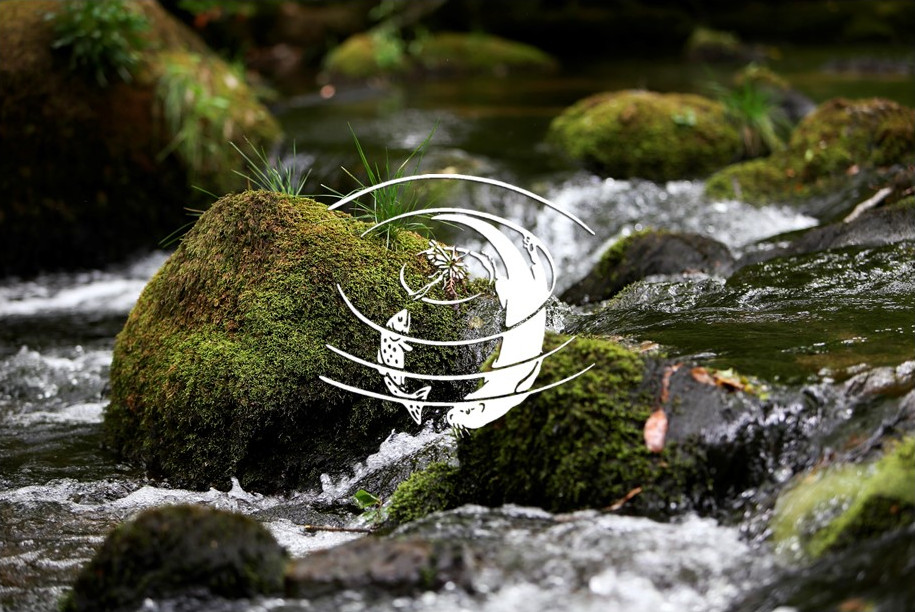Environmental organisations are meeting in Exeter on 12th and 13th September to discuss the implications of the decision to leave the EU and the role of partnership working in protecting the environment. Dr Laurence Couldrick, CEO of the Westcountry Rivers Trust argues that post-Brexit, groups need to move together as one to ensure the Government protect our countryside.
It is two months since the UK decided to leave the European Union and although I am still concerned it could weaken our environment I certainly understand the desire to address the bureaucracy of the EU and have more local control. Therefore, following the decision to leave the EU I am certain that the environmental movement needs to come together to tackle the complex problems we face, from pollution to habitat fragmentation.
Whilst the Leave and Remain campaigns both focused mainly on the impacts on economic and social issues, the effect on environmental protection received less attention. However, the future is just as uncertain and of deep concern. The EU has put in place many levels of protection that were designed by the whole of Europe, including the UK. These have allowed the environmental movement – including public, private and charitable bodies – to hold society to account for the collective impacts we are having on our land, rivers and seas. Examples include the Bathing Waters Directive that led to programs like South West Water’s ‘Clean Sweep’, which improved waste water treatment at sites across the South West and led to improvements in our bathing water.
As a result, we have seen some significant improvements over the years, however, there is still a detrimental legacy left behind from the intensification of our environment. Many of our rivers are still polluted, water floods our towns and cities, we suffer from droughts and shortages and the habitats and species that make the British landscape what it is are being marginalised. What we do know is that we have voted towards is the removal of these EU laws and what is expected to be a slower growing economy. Both of these erode significantly the ability to protect the very thing our society and economy depends on.
The Westcountry Rivers Trust is not a lobbying organisation and we have always tried to be led by equal measures of science and common sense to deliver practical solutions to the problems we face. To do this we work in partnership depending on the scale of the problem: some partnerships are very local and are based on what’s happening in our towns and villages, such as promoting local access to lakes and rivers; many are at a river catchment scale, such as working with farmers to improve water quality and reduce drinking water treatment costs; but, several are at a European level dealing with issues that go beyond the West Country, such as fish migration, are not easily solved on our own.
The EU partnerships we have took a severe dent when we made the decision to leave the EU but even the UK catchment management partnerships are at risk. The land that drains into our rivers plays a vital role in providing food, drinking water, flood risk protection, natural habitats and recreation. The Government’s Catchment Based Approach initiative involves local partners working together to keep our rivers and lakes healthy. So here in the South West, we work with businesses, local councils and other environmental organisations to improve the health of the river, we aim to protect and improve the resources it provides to all those who live and work in the catchment.
The catchment management approach is a great example of how local action can help deliver global agendas. Up until now, the overarching aims of our catchment management work have been governed by the EU Water Framework Directive, which is designed to help rivers achieve good ecological status with a view to improving water quality, as well as wildlife habitats. Whilst this may seem like another piece of EU bureaucracy the benefits of this extend to each and every one of us. Whilst we will always need to protect our environment and address the effects of climate change and un-strategic land use we are going to need strong leadership by the Government to ensure the UK leads on these issues.
Not only will the UK need to rally together to heal the division between leave and remain supporters but must proactively make the best of the situation to create a strong economy, society and environment. I for one call on the environmental supporters to pull together and move forwards as one to provide a strong voice for our land, rivers and seas during this time of change. By linking together, we can deliver the proactive change we want to see in the world and lead the way for Britain, Europe and the World.

